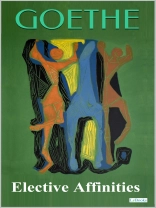The writer Johann Wolfgang von Goethe was an authentic Renaissance man: excellent in poetry, drama, literature, science, philosophy, painting, and politics, considered by many as the principal author of the German language. ‘Elective Affinities’ is one of his major works. When Goethe chose this title, ‘Wahlverwandtschaften’ was a technical term used only in chemistry. The connotations later acquired – in German and other languages – are largely due to the power of this great novel, elegantly rigorous, and which is, in fact, a reflection on the complications of human relationships, demonstrating how our experience of other people makes our experience of love and desire fluid and uncertain. It's no wonder that ‘Elective Affinities’ is part of the famous collection: ‘1001 Books You Must Read Before You Die.’
Over de auteur
Johann Wolfgang von Goethe. Birth: August 28, 1749 (Frankfurt am Main, Germany). Death: March 22, 1832 (Weimar, Germany). Style and genre: In Goethe, the traditional German language and voice combine, in a complex way, intellectual thought with a dramatic plot. Few writers incorporate the literary culture of a nation as completely as Goethe does for his native Germany. An authentic Renaissance man, his position as the principal author of the German language remains undisputed. A prominent figure in the cultural movements of Sturm und Drang (storm and stress) and Weimar classicism, which sought to imitate Greek classicism, Goethe's influence spread throughout Europe as the emblematic representation of Romanticism.












